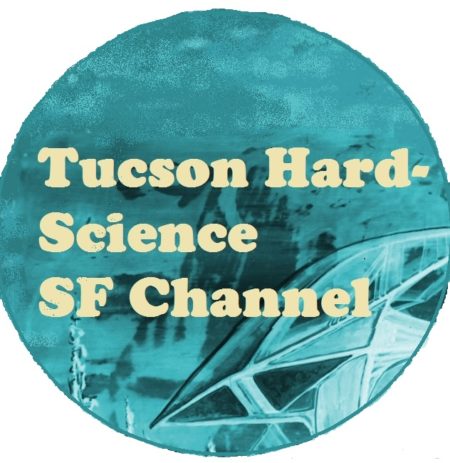Call for Papers – Extension
Queering Camelot: LGBTQQA+ Readings, Representations, and Retellings of Arthuriana
Fantastika Special Issue
Guest Editors: Rebecca Jones and Sebastian F.K. Svegaard
This is an open call for papers for a special issue of Fantastika continuing on from its Queering Fantastika issue, which will explore the queer side of Arthurian tales, adaptations, and fanworks. It seeks to include any and all media, whether directly adapting or only alluding to Camelot and Grail narratives. This issue will present a multivalent approach and is seeking both critical and critical practice-based research on this subject. The call has been extended to reflect a need for a longer writing period.
Submissions can range from historic analyses of Medieval manuscripts up to and beyond analysis of fanworks published yesterday. This exploration seeks to acknowledge the ways in which Arthuriana has a legacy steeped in ideas of gender roles and relations; sexual encounters, taboos, and restraints; and the limitations that society and individuals place on themselves which break relationships and create toxic spaces. By exploring how adaptations, readings, games, and fanworks reframe these narratives and choose to explore more queer pairings (shipping in fanfiction) or the relationships already there (the polyamorous potential of Arthur, Lancelot, and Guinevere and the swinger Lord and Lady of Sir Gawain and the Green Knight) this collection seeks to open new explorations of adaptation practice, fan responses and reframing, and present new readings of these old tales by allowing scholars and authors alike to take the chivalric and question how we engage with it today.
We welcome work on any kind of Arthurian narrative with a queer background in theory and/or praxis. These could be, but are not limited to, BBC’s Merlin (2008-2012), Mists of Avalon (1982), The Green Knight (2021), Dark is Rising (1965-1977), Cursed (2020), Fables (2002-2015), Once and Future (2019), or the tabletop role playing system Romance of the Perilous Lands (2019). We are interested in all forms of media adaptation, allusion, and engagement. Subjects and ways of analysis may include, but are not limited to:
- Critical and queer readings of Arthurian adaptations (ex. lesbian Morgana in Cursed, the homoerotic tension in Sir Gawain and the Green Knight)
- Music and affect as queer and/or feminist influence in Arthurian adaptations
- The queerness of chivalry and the Arthurian body (ex. the Fisher King’s body being bound to the land)
- Queering Camelot through casting
- Creative adaptations/retellings of Arthuriana
- Game worlds and player interactions in Arthuriana-inspired role playing, video games, and board games
We are seeking articles and creative-critical* works which should be between 5000-7000 words. Please include a 500 word abstract which should contain any content warnings at the end if applicable (warnings are not included in word count) and a 100-word author biography. The deadline for submission is 16 December 2022, but early submissions are greatly encouraged. Email us if you have any questions about critical-creative submissions. Fantastika is an open access journal, so be sure you have proper permissions for any images or content submitted and are happy for your work to be publicly accessible. Feel free to ask if you have any questions about permissions and the accessibility of your work.
We will not accept submissions arguing for the importance of studying Fantastika, and in the same vein we will not be accepting anything that argues for the importance of LGBTQIA+ representation and criticism. We take these arguments as a given and not open to debate. These ideas may of course be part of a larger and more nuanced analysis, but we do not accept submissions which have as its central aim arguing for its value.
All submissions will be peer reviewed. As part of this process, we require contributors to also join in the anonymous peer review process by reviewing 1-2 submissions.
Email all submissions to Rebecca Jones and Sebastian Svegaard at Queering.Camelot@gmail.com using the subject line ‘Queering Camelot Submission’. Please indicate your preferred pronouns in your submission email.
* Creative-critical is the use of a critical framework to inform a creative practice that explores aspects of society, media and culture. It is a tradition going back to Plato’s dialogues, that we wish to continue here.
For creative-critical pieces, we require an abstract that explains the academic scope of the piece and how it relates to the theme of the journal as well as some element of contextual, critical writing to go along with the creative work, which can take any form that is replicable in the journal.
Rebecca Jones (she/they) is an American researcher interested in representation across media and has published on the representation of women within fantasy television adaptations and science fiction films, diversity within comics, and the representational shifts within survival horror video games. She is a reviewer for Foundation: The International Review of Science Fiction and BSFA Vector journals.
Sebastian F.K. Svegaard (he/him) is a Danish researcher who works in the intersection of media, fan studies, music and affect. He has published on feminist offense as a creative influence for fans, vidding research methodology, and presented on queered superhero bodies in fanvids. He is on the editorial board for the journal Riffs.
